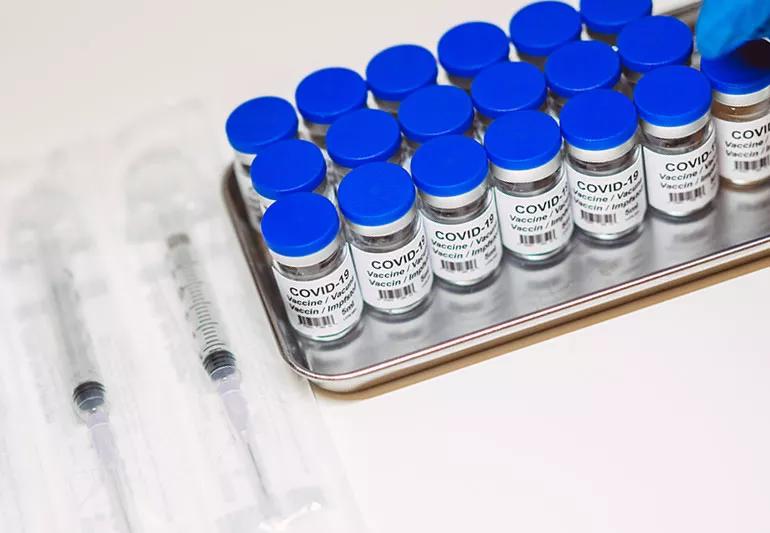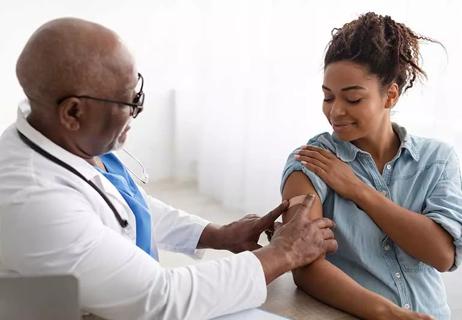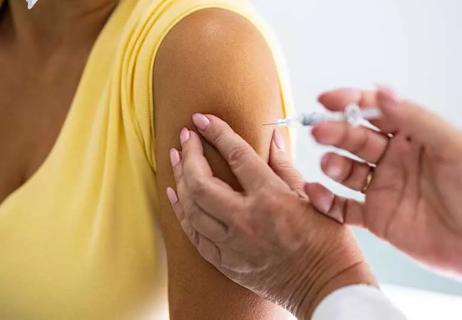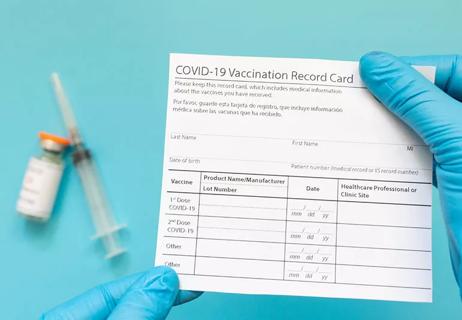Advertisement
There's still a long way to go, though

As the ongoing coronavirus (COVID-19) pandemic continues to unfold across the globe, researchers are continuing to work diligently toward a working vaccine. Several possible vaccines have entered large clinical trials and one in particular has shown promise, according to a Cleveland Clinic expert.
Advertisement
Cleveland Clinic is a non-profit academic medical center. Advertising on our site helps support our mission. We do not endorse non-Cleveland Clinic products or services. Policy
Pulmonologist Daniel Culver, DO, recently spoke about a novel RNA-based vaccine that showed promise. Even though Dr. Culver wasn’t involved in the research, he says that the Phase 1 trial, conducted at the Kaiser Permanente Washington Health Research Institute in Seattle and at the Emory University School of Medicine in Atlanta, showed promise.
“It’s showing that patients respond, that patients are responding in the way you would hope,” he says. The trial looked involved 45 adults, between the ages of 18 and 55, and included two separate doses administered 28 days apart.
Data from the study showed that the potential vaccine triggered an immune system response in patients, producing antibodies that could possibly fight off COVID-19. According to the National Institute of Health, the vaccine is called mRNA-1273 and uses what’s called “messenger RNA” to cause the immune system to generate antibodies that can fight the “spike” protein that the coronavirus uses to attach itself to human cells.
While the patients tolerated potential vaccine well, there are signs that it could cause some mild side effects, including fatigue, headache, chills, muscle pain and injection site pain.
Even with these early successful results, Dr. Culver points out that there’s a long way to go, including multiple additional phases of testing before potential approval for widespread distribution.
Advertisement
“The next steps are to prove that this actually is durable, effective at preventing infection and will be a useful strategy for populations,” he says.
On July 27, 2020, the National Institute of Allergy and Infectious Diseases announced that the vaccine was entering Phase 3 of testing. This new phase of testing will involve 30,000 adults and be a blind, placebo-controlled study. If this phase of testing proves successful, it could pave the way for the vaccine to go to market.
Dr. Anthony Fauci, director of the National Institute of Allergy and Infectious Diseases, also seems cautiously optimistic for the vaccine’s development, saying, “Results from early-stage clinical testing indicate the investigational mRNA-1273 vaccine is safe and immunogenic, supporting the initiation of a Phase 3 clinical trial. This scientifically rigorous, randomized, placebo-controlled trial is designed to determine if the vaccine can prevent COVID-19 and for how long such protection may last.”
Advertisement
Learn more about our editorial process.
Advertisement

Children as young as 6 months should get vaccinated, but dosage guidelines depend on kids’ ages and past vaccines

Updated vaccinations are recommended to better protect against the evolving virus

Redness, swelling, itching and rash can happen when your body’s immune system reacts to the vaccine injection

The latest vaccine offers the most up-to-date protection

Irregularities in cycle length and flow aren’t a cause for concern

Before you panic, here are the options to consider

Our expert explains why swollen lymph nodes happen

And why you shouldn't be so quick to post your COVID-19 vaccine card on social media

If you’re feeling short of breath, sleep can be tough — propping yourself up or sleeping on your side may help

If you fear the unknown or find yourself needing reassurance often, you may identify with this attachment style

If you’re looking to boost your gut health, it’s better to get fiber from whole foods